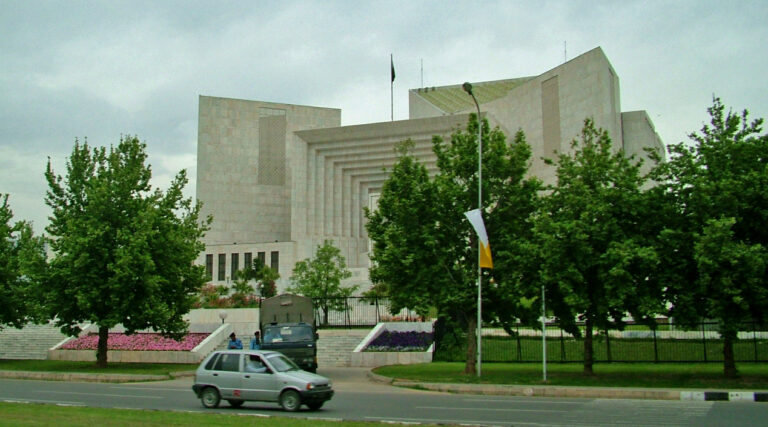Law, Religion, & Immigration Webinar and Series
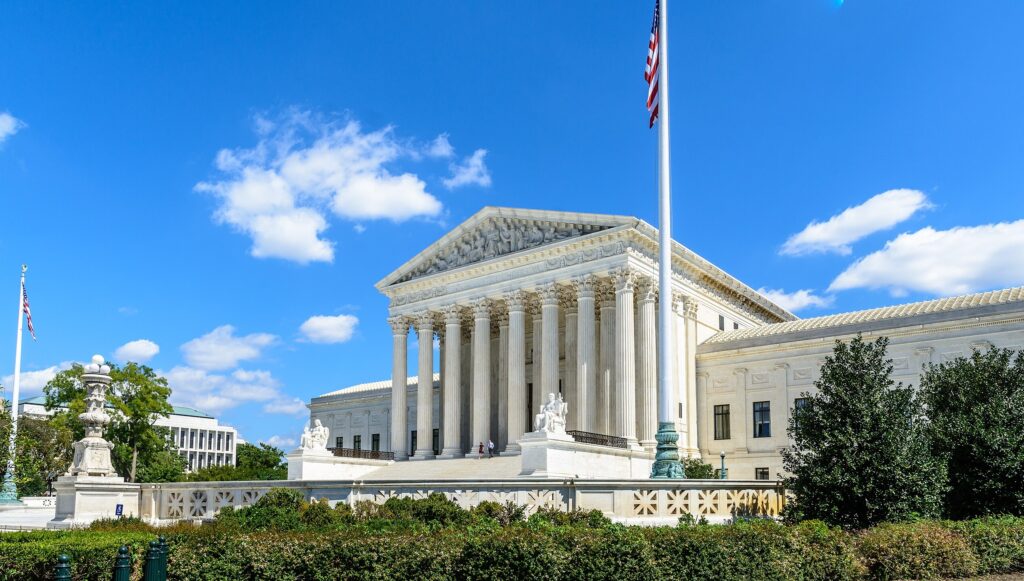
Photo of the United States Supreme Court by Domenico Convertini (CC BY-SA 2.0).
This event took place on October 28th, 2025. You can watch the recording and read essays by panelists and non-panelists here.
On October 28th, Canopy Forum hosted a virtual conference that will focus on the intersection of law, religion, and immigration. With the new Trump Administration, many changes and political issues have arisen regarding immigration policy as related to law and religion. In January 2025, The “Sensitive Locations” policy prohibiting ICE agents from entering churches, schools and hospitals was rescinded via Executive Order, resulting in a coalition of several churches suing the U.S. Department of Homeland Security (DHS) and Secretary Kristi Noemi. In the past few months, several additional cases relating to immigration and religion have been brought: immigrants in ICE custody are being denied their right to religious worship, a detained international student has alleged civil rights infringements against her, and the activist Mahmoud Khalil who is facing deportation after his protests were deemed “antisemitic”.
On an international level, immigration is rising as immigrants flee to escape conflict, violence, and even climate change. In June, The New York Times reported a significant shift in Europe toward anti-immigration policies reflecting rising anti-immigration sentiments. This summer, Poland announced a law limiting asylum immigration claims. While a bill calling for tougher stances proposed by the right-far party narrowly missed passing in Germany, laws have recently been put in place to end fast track-citizenship. Denmark, once criticized for its harsh stance on immigration, is now a leader in anti-immigration policies, influencing other EU nations. At the European Union level, the new Pact on Migration and Asylum was signed last year.
With controversies and polemics swirling around immigrants, immigration laws, the role of the state in connection to religious immigrants, and religious protection questions, Canopy Forum is hoping to address questions of global immigration, religious plurality, and the relationship between states and religious actors.
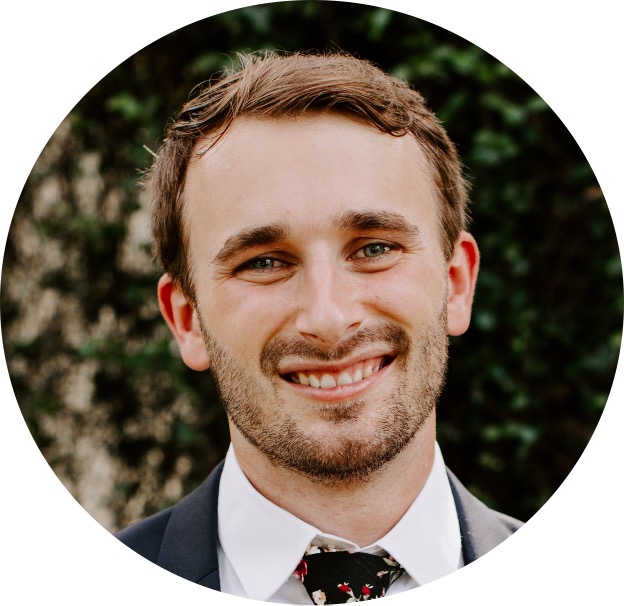
“Sanctuary as Insular Constitutionalism”
Bryan Ellrod is the University’s Director of Pre-Law studies. Working in this capacity, Dr. Ellrod endeavors to develop courses, advising, and co-curricular programming that would cultivate the excellences of character and mind necessary to equip students for their pursuits in the justice-seeking professions and to infuse their work with the ideal of pro humanitate. His current book project, “Can These Bones Live: A Political Theology for the US-Mexico Borderlands,” takes up these questions in light of the US border enforcement regime known as “Prevention Through Deterrence.”
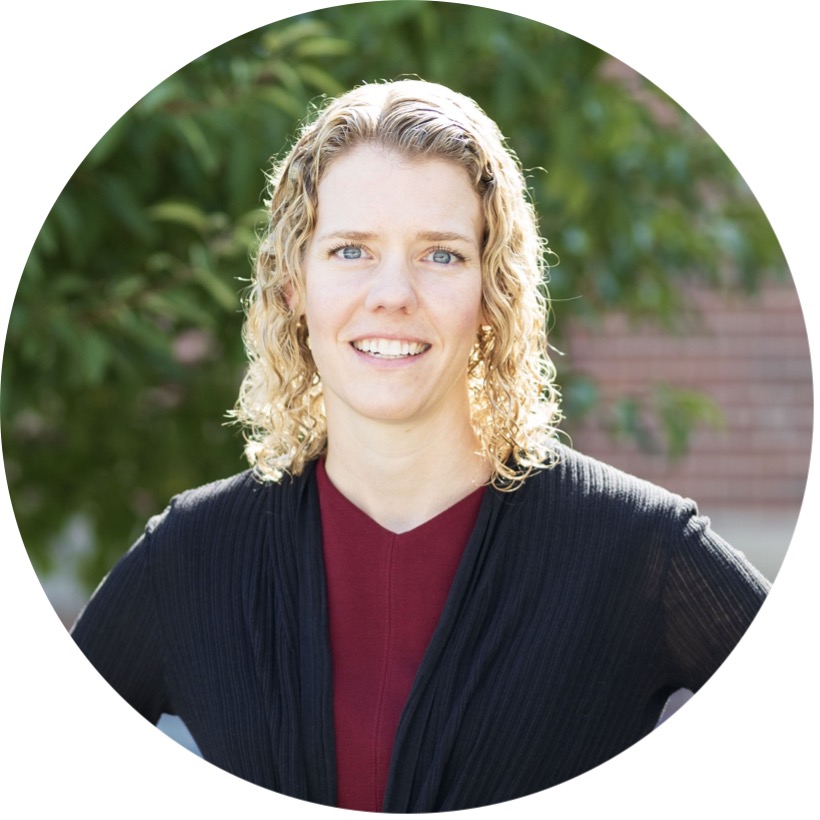
“Economic and Religious Arguments for Welcoming Immigrants in a Nebraska Advocacy Alliance”
Laura Alexander is Associate Professor of Religious Studies and Executive Director of the Goldstein Center for Human Rights at the University of Nebraska at Omaha. She holds an M.Div. degree from the University of Chicago and a Ph.D. in Religious Ethics from the University of Virginia. Dr. Alexander’s research and teaching expertise is in religion and human rights, with a focus on human migration, refugee studies, and intersections of human rights, states, and borders. She is the author of the textbook Religion and Human Rights: An Introduction from Routledge publishers and co-editor of The Meaning of My Neighbor’s Faith: Interreligious Reflections on Immigration from Lexington Books.

“Religious Liberty and Immigration: An Analysis of Recent Legal Claim”
Liz Reiner Platt is the Director of the Law, Rights, and Religion Project at Union Theological Seminary, a law and policy center that advocates for religious freedom, pluralism, and social justice. Her most recent work is “Religious Liberty & Immigration: Legal Analysis of Past and Future Claims,” which gives a sweeping account of religious liberty challenges to immigration enforcement.
Additional Essays on Law, Religion, and Immigration
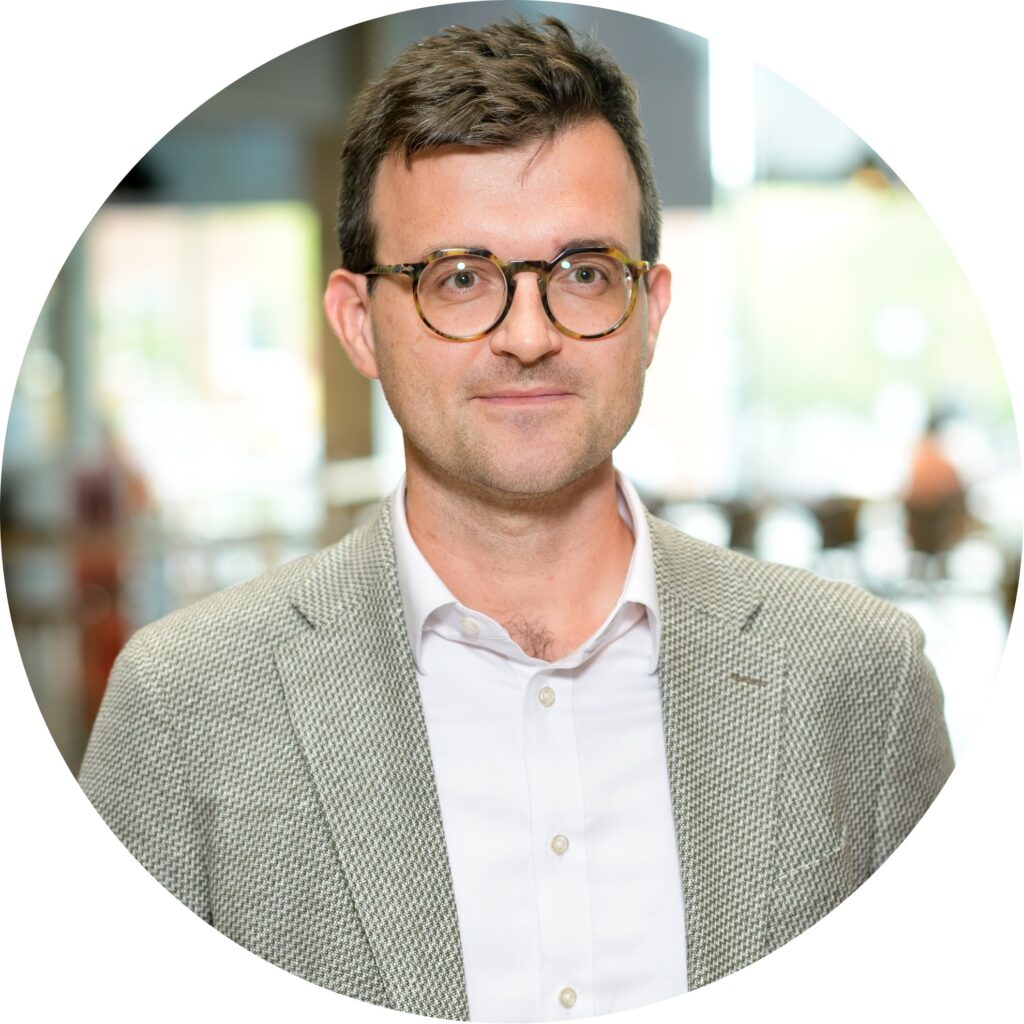
“Migration Policy behind the Veil of Ignorance: “Race” and “Religion” in the 2024 EU Migration Pact”
Ulrich Schmiedel is Professor of Global Christianities at Lund University, Sweden. He has written widely on public and political theology. Currently, he is running a 5-year research project on “Faith-Based Refugee Relief in Europe: Connecting the Empirical and the Ethical,” funded by the European Research Council.

Dianne van den Bosch is a doctoral student in Ethics at Lund University, Sweden. Combining empirical and conceptual methods, her work investigates how faith-based care is practiced in the European migration context.

U.S. Refugee and Immigration Policies: The Wages of Cruelty and Indifference
Donald Kerwin is Vice-President for Advocacy, Research and Partnerships for the Jesuit Refugee Service/USA. Kerwin has held leadership positions in the Catholic Legal Immigration Network Inc. (CLINIC), the Migration Policy Institute (MPI), and the Center for Migration Studies of New York (CMS). He has also served on many boards, special commissions, and advisory groups.
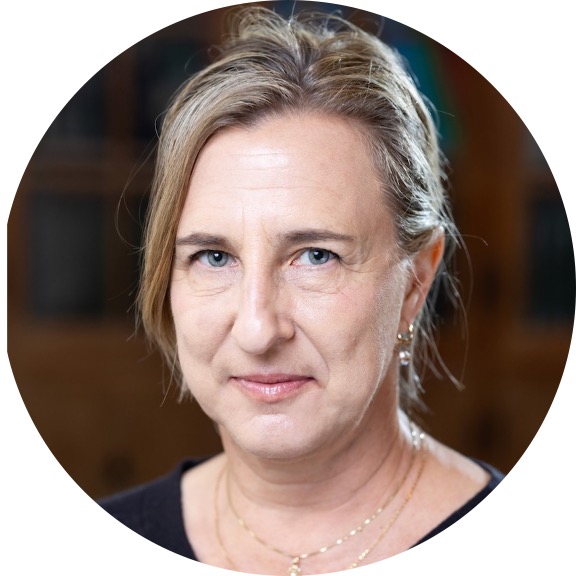
No Kings: Plenitudo potestatis and the Sanctity of US National Security
Elizabeth Shakman Hurd is Professor and Chair of Religious Studies and Professor of Political Science at Northwestern University. This essay draws in part on her new book Heaven Has a Wall: Religion, Borders, and the Global United States (Chicago: University of Chicago Press, 2025).
Recent Posts



